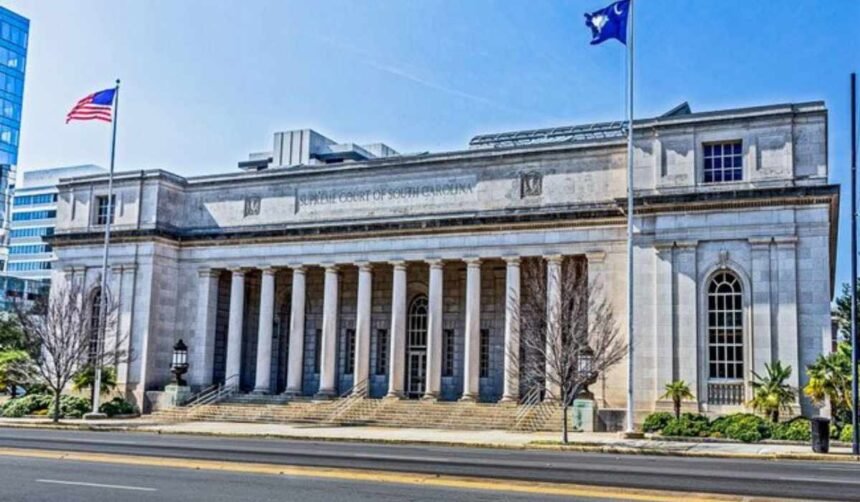In a recent ruling that has ignited debates across the nation, South Carolina’s all-male Supreme Court upheld a six-week abortion ban, prompting outrage and accusations of a politically motivated decision. The ruling has sparked discussions about the balance of power, gender dynamics, and the role of the judiciary in shaping the state’s laws.
Critics argue that the ruling underscores the arbitrary nature of laws and the influence of those in positions of authority. The state’s General Assembly, largely composed of conservative white men, has been under scrutiny for its role in crafting policies that affect women’s rights. The court’s decision to deem a previously unconstitutional law as permissible has fueled claims that the judicial system has become politicized.
Vicky Ringer, the director of public affairs for Planned Parenthood South Atlantic, expressed her concern on social media, pointing out the inconsistency in the court’s interpretation of the law. The absence of privacy protections for women in this ruling raises questions about the extent to which constitutional rights are upheld in South Carolina.
The controversy deepens as the lone female justice on the Supreme Court, Honorable Kaye Hearn, recently retired due to age, leaving a gender imbalance on the bench. Critics argue that this shift may have influenced the court’s decision-making process and highlights the need for diverse representation in positions of power.
Amidst the arguments about the legal aspects, the broader impact of the ruling on women’s health and well-being has also been a subject of concern. Exceptions for cases of rape and the mother’s life are anticipated to be rarely granted, raising fears about the potential consequences for pregnant women facing life-threatening situations.
The abortion ban decision is not an isolated incident in South Carolina’s legislative landscape. Critics point to a pattern of policies that disproportionately impact vulnerable populations, including children and pregnant women. The state’s lawmakers have been under scrutiny for their support of measures that raise questions about their true commitment to the “pro-life” cause.
As South Carolina’s education system begins a new school year, discussions are emerging about the implications of the ruling for legal education. The controversial decision is being cited as a prime example of motivated reasoning overshadowing impartial constitutional interpretations, prompting reflections on the state’s legal foundations.
The history of South Carolina’s power dynamics is also being revisited in light of this ruling. From the Reconstruction era to the present day, questions of authority and equality have shaped the state’s trajectory. Critics argue that recent legislative efforts to shape the teaching of history further cloud the understanding of the state’s past, contributing to a perception that progress is being stifled.
In an increasingly interconnected world, the South Carolina Supreme Court’s decision has resonated far beyond the state’s borders. The ruling has reignited discussions about women’s rights, representation, and the intersection of politics and the judiciary. As the nation watches, the debate over this decision continues to unfold, sparking broader conversations about the course the state is charting for itself in the 21st century.



